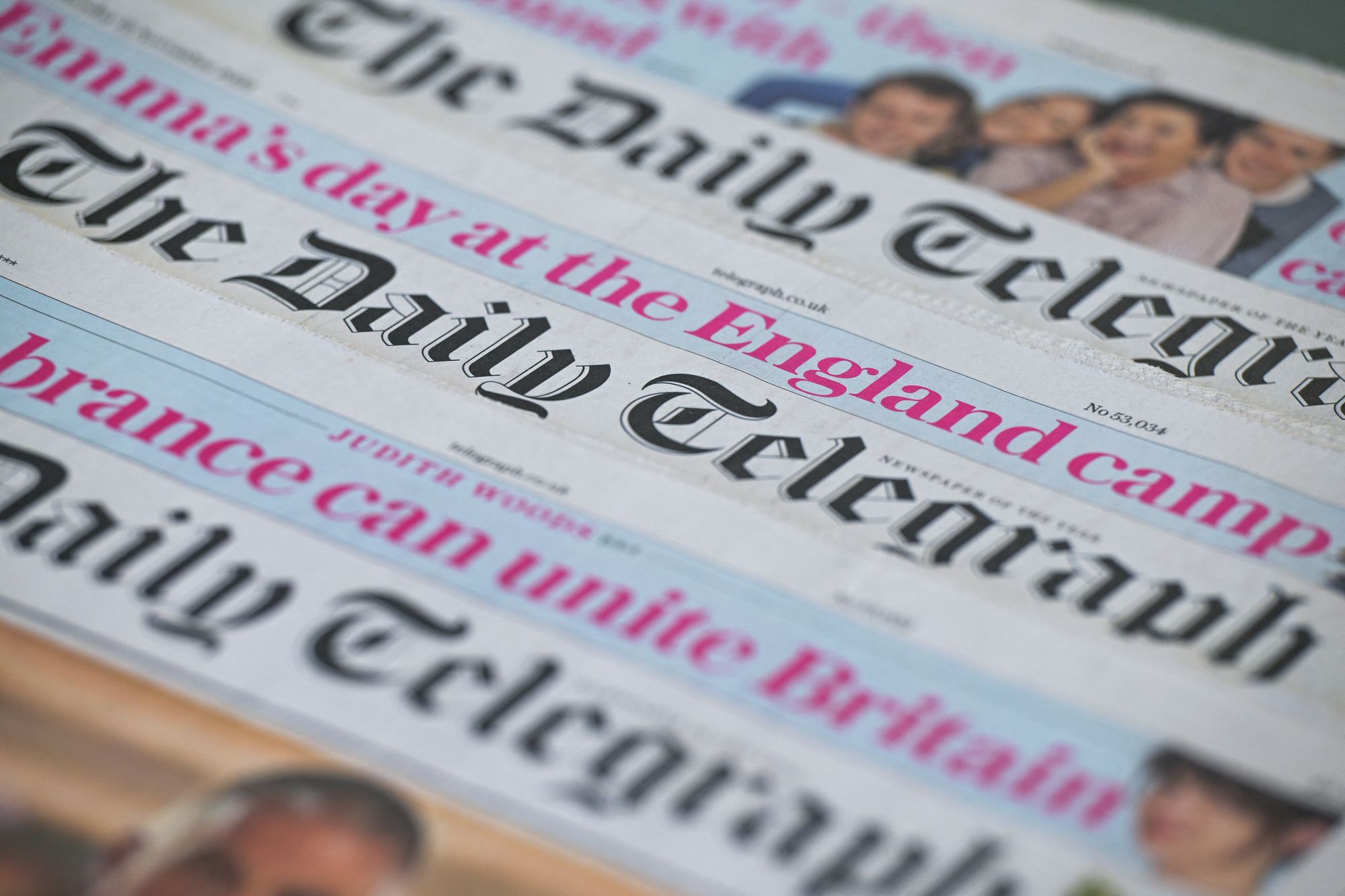- Voices
The Mail-Telegraph merger is raising fears about monopolies and influence, but the motivations behind it lie in online subscriptions, says Chris Blackhurst – leaving the prime minister and the watchdogs struggling to keep up
Saturday 22 November 2025 15:45 GMTComments
 CloseBoris Johnson calls The Telegraph his ‘real boss’, claims Dominic Cummings
CloseBoris Johnson calls The Telegraph his ‘real boss’, claims Dominic Cummings
The best of Voices delivered to your inbox every week - from controversial columns to expert analysis
Sign up for our free weekly Voices newsletter for expert opinion and columns
Sign up to our free weekly Voices newsletter
 Email*SIGN UP
Email*SIGN UPI would like to be emailed about offers, events and updates from The Independent. Read our Privacy notice
So, Lord Rothermere has achieved a long-held personal ambition in agreeing a deal to buy the Telegraph newspaper titles.
On the face of it, the £500m takeover makes perfect sense. The Telegraph, which has been up for sale for two years, will finally find a home that should cherish it and maintain its editorial independence. For Rothermere and his Daily Mail group, there will be economies of scale in owning two large publishing operations. They can take costs out of the back offices and the printing and distribution functions. Whether there are further savings to be had from what are already pared-back editorial departments at both main titles is a different matter.
Rothermere will stand alone, unchallenged, as the owner of a right-wing media powerhouse, holding enormous sway over middle England, something that has long appealed to him.
Issues about the Telegraph falling into foreign hands and becoming influenced by a Middle Eastern state backer/supporter have fallen away. So too have fears about the Telegraph’s continued survival: when it was first put on the market, there was an absence of interested bidders – not at the asking price.
 The Telegraph Media Group is set to be sold to the Daily Mail and General Trust for £500m (AFP/Getty)
The Telegraph Media Group is set to be sold to the Daily Mail and General Trust for £500m (AFP/Getty)But it’s not that simple. On monopolistic grounds, there is a clear case for the intended combination to be scrutinised closely by the regulators, Ofcom, and the Competition and Markets Authority (CMA). Those audience-concentration concerns, however, are based entirely on a share of a print market that is declining. That is unlikely to deter the CMA, however – only last month it announced an in-depth probe into the proposed merger between Getty Images and Shutterstock. This is despite the fact that photo-licensing and picture libraries face ever-intensifying pressure from AI.
Tech advances are of little concern to the CMA. In this sense, the regulator lags behind reality. The very real aspect of the Mail-Telegraph unification, and what really lies behind Rothermere’s commercial motivation, is not newsprint at all but digital: he and his colleagues believe they can drive Telegraph online subscriptions, bringing the expertise they have deployed so successfully with the Mail to an area where the Telegraph has been found wanting.
This is the real attraction for Rothermere. The irony, then, is that his move may be blocked or watered down because of worries that are actually secondary. For him, this is primarily a digitally focused acquisition, make no mistake.
To appease the watchdogs, he may be required to offload the i newspaper and Metro. Originally, when he first showed an interest in buying the Telegraph and Rupert Murdoch was chasing the Spectator, also part of the same Telegraph group, it was thought they would come to an arrangement: Rothermere would sell The i to Murdoch, which would get around the competition problem. Whether the Murdoch group, now run by Rupert’s son Lachlan, would still be interested in The i is not clear. Similarly, it is uncertain who would step forward to take the Metro.
The other factor here is politics. The left is bound to shriek and scream at the idea of one proprietor, an out-and-out right-winger, owning such a swathe of the newspaper industry. They will complain about too much power being concentrated in one person and demand that it is stymied.
That ignores the fact that the Telegraph is hardly a Labour groupie and is as firmly opposed to Labour, certainly to this government, albeit less vocally, as the Mail. Putting them under the same ownership is unlikely to make much difference. It does not pay any heed either, as with the regulators, to the fact that this is an argument rooted in the past – when newspapers really could have some say over the outcome of elections. The Mail and Telegraph were vehemently anti-Labour, yet look at the last ballot result: nobody – or rather too few people – were paying them any attention.
While his backbenchers will cavil, Sir Keir Starmer may be minded to adopt a more pragmatic stance. Ultimately, it will be a decision for him if the merger goes through. He could decide that if he does not give them his blessing, he will make even fiercer enemies of the duo than at present: that, by affording the union the nod, he might even obtain their approval. It would not last, but right now it is far better than the current, relentless, daily animosity.
That, though, would bring him into conflict with the rump of his party. Previously, he has shown an inability and unwillingness to confront the left – the climbdown over welfare reform being the most glaring example. It presents Starmer, then, with a tricky dilemma.
One thing is definite: having laid to rest the rows over super-rich foreign rulers snapping up our news media, a new battleground is just opening up. Rothermere has some distance still to go.
More about
the telegraphnewspaperTakeoverCMAIndependenceJoin our commenting forum
Join thought-provoking conversations, follow other Independent readers and see their replies
Comments



